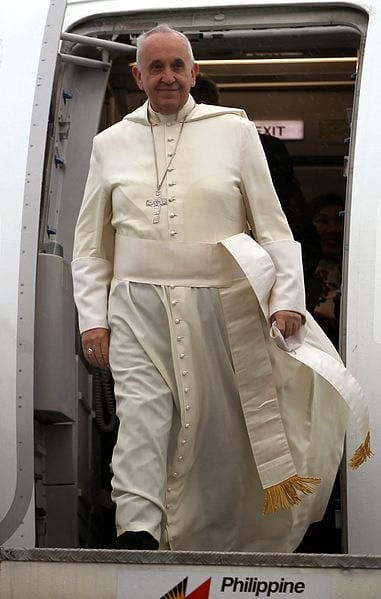The two day visit from the pontiff over the weekend led to a strategic effort to ensure full coverage.
This weekend, Pope Francis visited Philadelphia, ending the six day visit to the United States, and among the headlines that this made, it also worked its way into the insurance news spotlight.
The reason is that there were special event policies that were required in order to cover the apostolic journey.
In Philadelphia, this insurance news involved a special event policy through multiple insurers, led by W.R. Berkley Corp. and OneBeacon Insurance. This, according to the firm that was responsible for assisting in brokering the coverage in the first place. Porter & Curtis LLC from Pennsylvania and DeWitt Stern Group, from New York, have been working together to broker for the Philadelphia Archdiocese.
In total, there are five different insurers that were making the insurance news headlines for this coverage.
 Five insurance companies were responsible for underwriting the special events coverage for the Pope’s visit to this one city. There were no real specifics released to the public about the size of the premiums, although it was indicated that it was within the range of “a couple hundred thousand dollars” and that the limit of the coverage was in the “tens of millions of dollars” range, according to executives with knowledge of the policy.
Five insurance companies were responsible for underwriting the special events coverage for the Pope’s visit to this one city. There were no real specifics released to the public about the size of the premiums, although it was indicated that it was within the range of “a couple hundred thousand dollars” and that the limit of the coverage was in the “tens of millions of dollars” range, according to executives with knowledge of the policy.
The DeWitt Stern Group managing director of the Entertainment and Media Division, LeConte Moore was initially contacted by Porter & Curtis principal, Bill Curtis, about a year ago in order to collaborate in order to come up with the proper risk coverage.
The special events coverage was primarily for the main visits being made by the Pope, such as the Roman Catholic World Meeting of Families 2015 conference.
The coverage in this insurance news included all events throughout the two-day stay to the city and all affiliated events of the conference, right down to specific details such as any damage that could have occurred to a historical lectern that President Abraham Lincoln had used in 1863 for the delivery of the Gettysburg Address, which was fortunately not needed.

